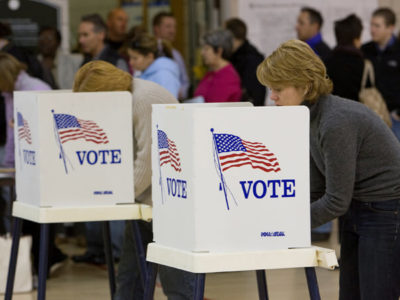When I start thinking about politics and voting, it reminds me of space: vast, overwhelming and out of reach.
I listen to the news and hear about Iowa and all these statistics I can’t seem to wrap my head around. I try to keep up with the debates and the pressing issues, until they start talking about the Iranian Deal and other current events I’ve never really understood.
Maybe it’s just me, though. I wouldn’t consider myself the most politically savvy person in the world. I’m not going to lie and pretend I watch CNN every night. However, I don’t think I’m the only one.
To get an idea of what other people my age think, I put a survey up on Twitter asking, “Do you know, or have an idea, of who you are going to vote for in 2016?” The results varied but it showed that most people I know are split 50/50–which means there are other young people out there in the same boat as me.
According to the Census Current Population Survey November Supplement, in the 2012 presidential election, only 41.2 percent of people aged 18-24 voted. Unlike my lowly Twitter survey, this represents the real American population.
Why did less than half of young people vote? Could it be that many of us just didn’t know where to start?
I think this is a definite possibility. According to Dr. Frances Lee, an American Politics professor at the University of Maryland, it’s okay for young people to feel this way. However, that shouldn’t stop them from exercising their right to vote. “Being overwhelmed is completely normal for young people at this stage that it’s not something to be embarrassed about. It’s just a basic fact about how young people’s political awareness develops over their life cycle,” Dr. Lee said. “I think the best way to think about it is to regard it as a civic duty.”
Okay, so we’re allowed to feel overwhelmed. But how do we decide between the Trumps and the Sanderses in the world? Dr. Lee breaks the process into three simple steps when choosing a presidential candidate: “The key is to balance your views on policy issues, on who would be a good president (who has the temperament, the personal qualities you look for in a leader) and who can win.”
As first year voters tackle the process of deciding who will get their vote, following these three points will make the process significantly easier. Yet, choosing a candidate will still require some effort on your part. Once you’ve figured out where you stand on major issues, identify which candidate holds the closest views to your own. Do they support pro-life or pro-choice ideologies? More or less strict immigration laws? Then decide who you think will best lead our country by looking at their leadership qualities and how they present themselves in debates and speeches. Finally, figure out the likelihood your candidate has of winning, based on the polls or how they have done in the primaries in the states before your own.
In addition to following these three steps, Dr. Lee encourages young voters to pay attention to the primaries throughout their decision-making process. The political race is constantly changing. “Look at what happens in the earlier stage and let that help you shape your choice. You can’t choose now, because the person you choose now by the end… may not even be viable anymore. You have to sort of go with the flow in the course of the primary race. It’s very likely that by that point [when your state votes in the primaries] the race will be essentially decided,” Dr. Lee said.
If you’re still feeling overwhelmed, remember that even veteran voters sometimes feel at a loss when choosing a candidate. If you’re not sure where each candidate stands on the primary issues, Google them. Take advantage of the many online platforms that lay out each candidate’s views to make it easier for you to differentiate between the choices. In addition, several websites offer quizzes that ask where you stand on crucial issues and match you with the candidate that lines up closest with your own views.
So don’t lose hope: whether you’re #FeelingTheBern or want to “Make America Great Again,” making an informed choice really is possible.



















